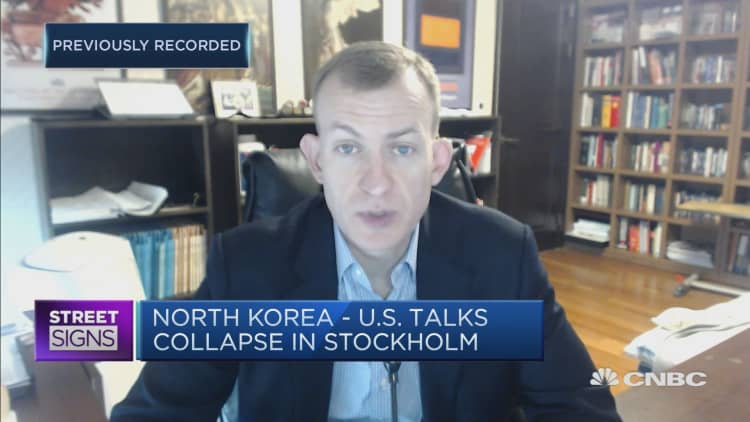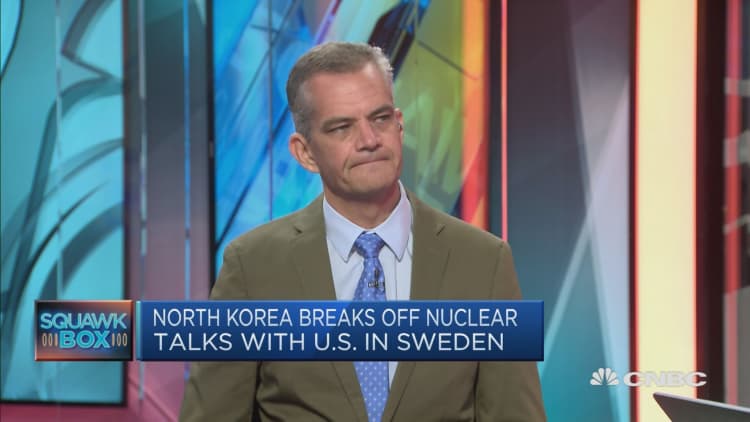
Washington will have to consider big concessions before a nuclear deal between the U.S. and North Korea can be reached, one professor said Monday.
His comments follow recent working-level talks between the U.S. and North Korea, which ended in a stalemate. North Korea's chief nuclear negotiator claimed the U.S. disappointed Pyongyang by "bringing nothing to the negotiation table." The U.S. State Department disagreed with Pyongyang's characterization, saying that the American delegation had "brought creative ideas and had good discussions."
Robert Kelly, associate professor of political science at South Korea's Pusan National University, explained that the White House may need to be more open to compromise if it wants a real breakthrough.
"Trump has sort of framed victory with North Korea as North Korea giving up stuff, and (the U.S.) not giving up very much in response," Kelly said. "I think the Americans need to offer some pretty major counter-concessions for the North Koreans if we're going to ask them for any serious quantity of their nuclear weapons or their missiles."
What does the U.S. need to give?
But offering sanctions relief alone may not be good enough, Kelly said. Rather, Washington needs to offer something "juicy," like bringing the long-isolated North Korea into U.S.-dominated institutions like the International Monetary Fund and World Bank, or even a peace treaty to formally end the Korean War, he said.
Washington and Pyongyang have made little progress in their discussions about dismantling North Korea's nuclear and missile program. The two sides abruptly ended a February summit in Vietnam as President Donald Trump and North Korean Kim Jong Un left without a deal.
Nuclear weapons are valuable to the small, isolated nation of North Korea, which counts China as its sole major ally, Kelly noted. These weapons are an important part of the Pyongyang's defense strategy, and it'll take a big offer from the U.S. before it would give them up.
If not, America will just have to accept the status quo, Kelly said.

Political developments could factor into future negotiations for bilateral nuclear talks, another researcher said Monday. These developments include Trump's 2020 reelection campaign and impeachment probe, which ramp up pressure as public sentiment among Republicans shifts.
"I think the North Koreans will try their best to push as hard as they can," RSIS associate research fellow Shawn Ho said Monday.
Senior partner at consultancy Control Risks, Dane Chamorro, said Monday that interactions with North Korea are always "infused with a lot of theater." In this case, the recent stalemate could be another step toward further bilateral talks, said Chamorro, in which Pyongyang might want to strike a bargain they perceive as more beneficial.
The U.S. said it accepted Sweden's invitation to return to Sweden for more discussions with Pyongyang in two weeks. It is unclear whether North Korea will return to the talks. Reuters reported, citing state media, North Korea doubts the U.S. would have alternative plans ready by then.

